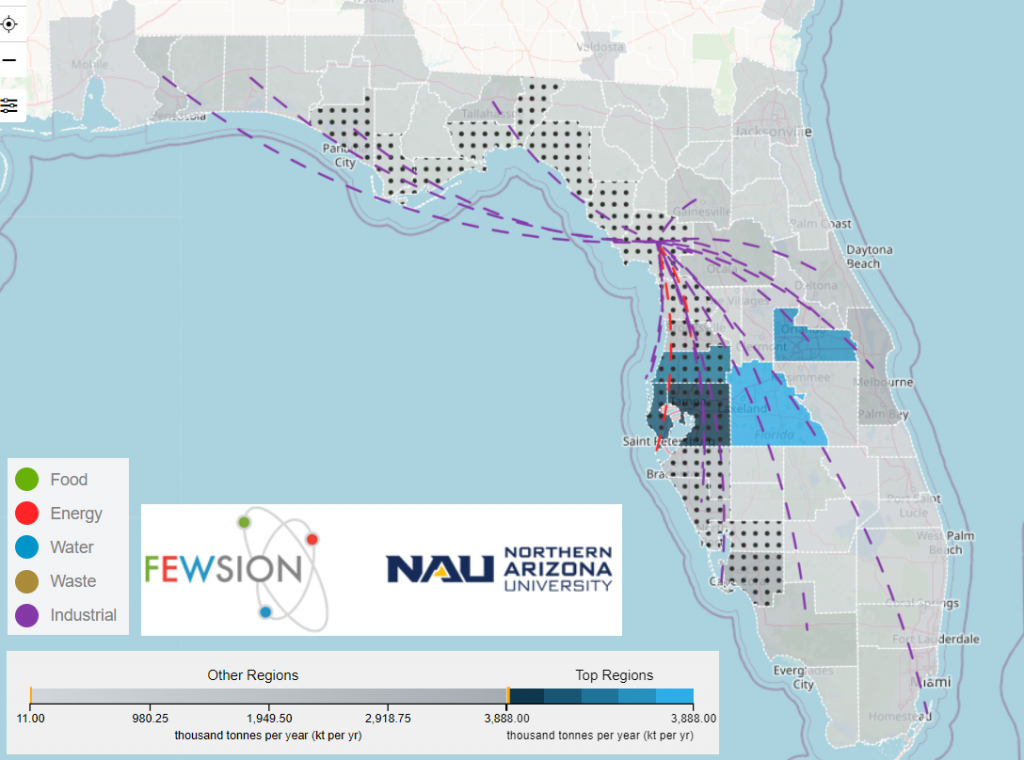The anticipated storm surge from Hurricane Idalia could affect supply chains that run through the Tampa Bay metro area, including petroleum products from the Gulf Coast that supply many central Florida population centers.
U.S. supply chain experts Benjamin Ruddell and Richard Rushforth from the FEWSION Project, which maps all supply chains throughout the United States, are available to discuss potential impacts from the storm bearing down on the middle of Florida’s Big Bend. The biggest concern as of now is the storm surge; high levels of storm surge are expected to for MacDill Air Force Base and the Tampa International Airport.
Major population centers and numerous regional critical supply chain infrastructure systems are not currently in the storm’s path. However, being aware of different possible outcomes will help regions whose supply chains run through the Tampa Bay area to prepare for potential short- and long-term effects.
- Rushforth: “There is a prediction for significant storm surge in the Tampa Bay metropolitan area. The areas with the highest expected storm surge have critical dependencies outside the region. Notably, petroleum products refined on the Gulf Coast are shipped to terminals on Tampa Bay; these products are used locally and piped to central Florida population centers, like Orlando. The highest storm surges are expected where the major petroleum terminals are located.”
- Ruddell: “The FEWSION supply chain data science project provides information about the supply chains of every U.S. community. Using this data, our research team at Northern Arizona University expects the supply chain impacts from Hurricane Idalia to be confined mostly to the communities of the Florida Gulf Coast, with the most severe impacts likely to fuel supplies in Tampa and central Florida.”
Ben Ruddell, director of the FEWSION Project and professor in the School of Informatics, Computing, and Cyber Systems; (928) 523-3124 or benjamin.ruddell@nau.edu
Richard Rushforth, research scientist in FEWSION and assistant researcher professor in the School of Informatics, Computing, and Cyber Systems; richard.rushforth@nau.edu
What is FEWSION?
FEWSION, which is funded by the NSF, uses comprehensive data mapping to monitor domestic supply chains down to individual U.S. countries. It was developed to give government officials and emergency managers accurate information about their supply chains so they can be aware of the risks from hurricanes, pandemics, geopolitical issues and other factors that can affect supply chains, thus helping communities and states plan and give confidence to consumers as they understand how resilient their supply chains are. FEW-View™, the supply chain visualization website, is available to the public.
Media contact: Heidi Toth, heidi.toth@nau.edu; (575) 910-0697
Top photo: FEWSION figure that illustrates major supply chain outflows from the forecasted hurricane impact area, emphasizing manufactured goods and fuel shipped out of Tampa to the surrounding region.



